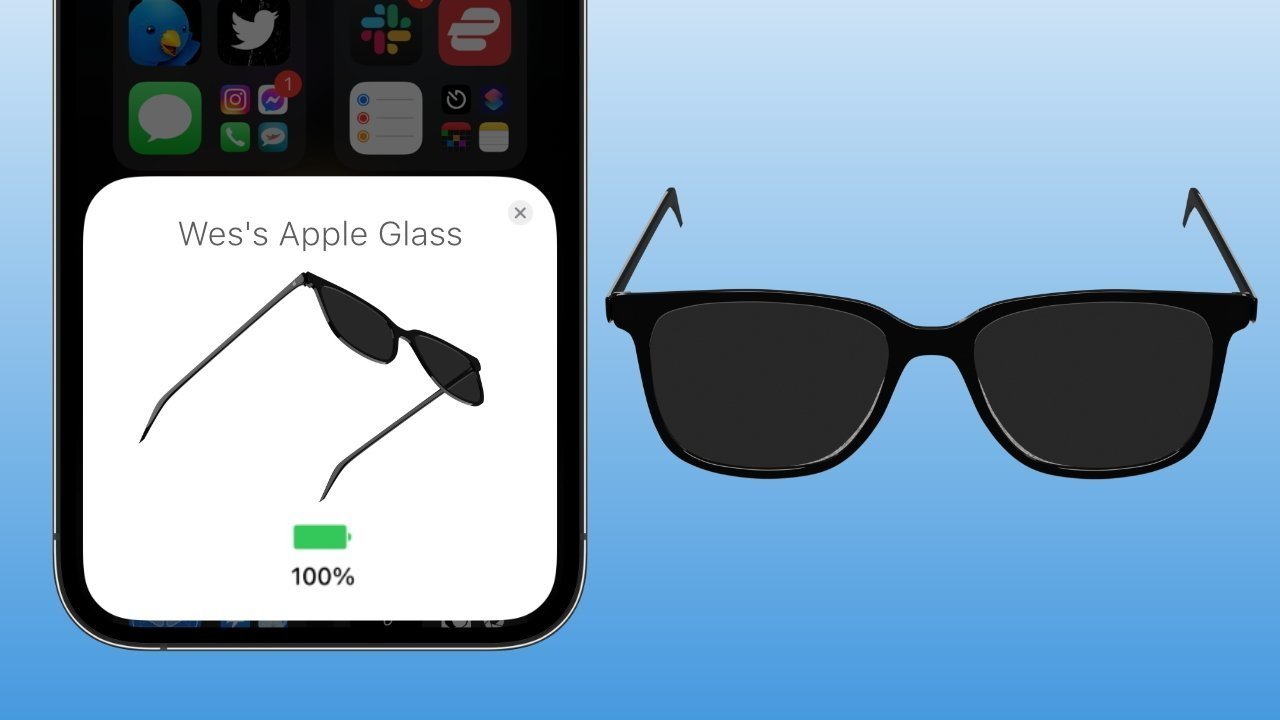Apple's eventual goal of producing its Apple Glass smart glasses is still a long way from reality, with the challenges of making light and useful eyewear posing a problem.

The ideal smart glasses should be thin, light, and minimalist in their design
The release of the Apple Vision Pro was the first step in Apple creating a new product category for itself. The eventual end goal is for Apple to create smart glasses that crams all of that technology into a thin pair of spectacles, but that is still going to be a dream for quite some time.
In answering a query in the Bloomberg "Power On" newsletter, it is explained that work is underway within Apple on a version using augmented reality. However, "nothing is coming in the near future."
The article points out that Apple has to "solve a difficult formula" before releasing it. This includes creating a lightweight design far smaller than the one used for the Apple Vision Pro.
It also needs to have a suitable battery life and "compelling displays," while staying within budget that won't be too expensive for consumers.
It is expected that Apple will take another three to five years to get the concept right. Despite existing progress from Meta, Google, Xreal, and other augmented reality firms, Apple will want to take its time solving the design conundrum.
A difficult problem
Apple's work in head-mounted displays and augmented reality is expected to culminate in Apple Glass, the current expected name for the smart glasses.
It has been a long time in development, with many rumors and reports over the years touching on the subject. At one point, the concept involved a glasses-like accessory that could accept an iPhone, putting the display right in front of the user's eyes.
Current speculation is the use of something more like spectacles, rather than an Apple Vision Pro-like device. Processing is said to be handed off to an iPhone or a similar piece of hardware.
Apple has multiple challenges to face in order to get the glasses going. Some, such as weight and bulk, can be solved by miniaturizing components, which is a general trend in the tech field that happens over time.
Batteries are harder to miniaturize, so Apple has to work out how much of a physical battery to include, and ways to use it more efficiently.
Probably the toughest is having some form of augmented reality display system. While it has come up with a version in the Apple Vision Pro, it has to work out how to use AR without adding a bulky display to otherwise thin and light glasses.
It also has to be wary of adding unusual elements that could draw attention from other people. For example, the display element of Google Glass.
Even so, all signs still point to Apple working on the concept for an eventual release down the road. In October, an internal study was launched as "Project Atlas," gathering employee feedback on existing smart glasses already on the market.
More internal focus groups are planned on the topic.
As for when the glasses could arrive, there have been forecasts for launches in 2026 and 2027, depending on Apple's progress.
